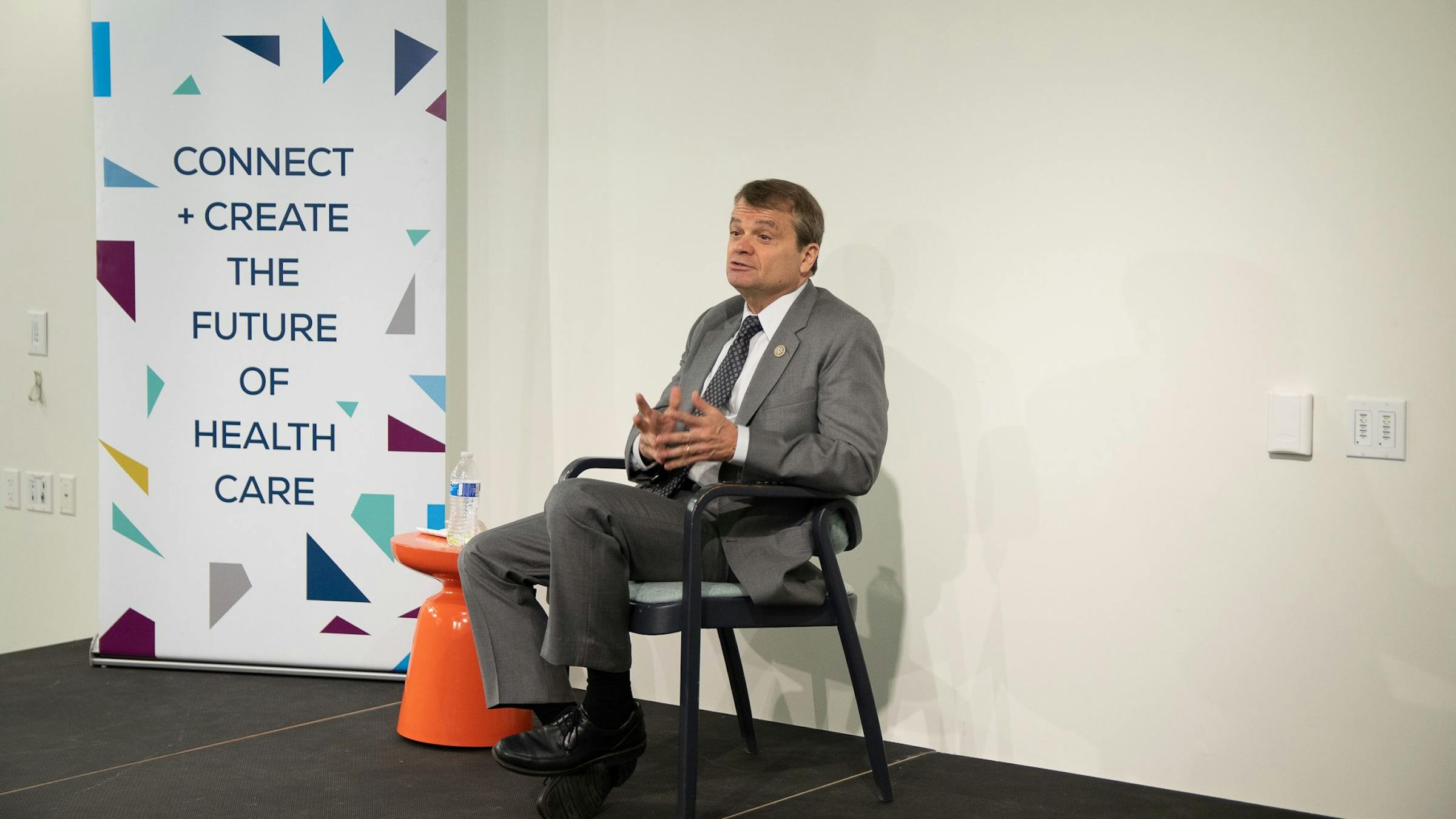A conversation with Representative Mike Quigley
Decisions made in Washington can have profound effects on our healthcare system — everything from biomedical research, to insurance and the delivery of care, to the factors that help shape overall health and wellbeing.
In advance of the 2018 midterm elections, MATTER, the Health Care Council of Chicago (HC3) and the Illinois Biotechnology Innovation Organization (iBIO) extended invitations to congressional representatives and major-party candidates from Chicago-area congressional districts to discuss their positions on healthcare with our communities.
U.S. Representative Mike Quigley (D-IL, 5th District) joined us at MATTER on August 15 for a conversation with members of the MATTER, HC3 and iBIO communities. He shared his views and positions on healthcare policy and responded to questions from the audience. Below are a few highlights from the conversation.
Everything that gets done here gets done in the middle.
“When we were trying to pass the ACA, I had groups picketing me because I wasn’t on a single-payer bill, and they were angry that I would dare vote for a bill that wasn’t single-payer. And folks on the far right were angry that I’d vote for healthcare at all.
“Everything that gets done here gets done in the middle. That is true and we have forgotten it.”
We need healing voices.
“We’re as polarized as I’ve ever seen us. I don’t see people talking about policy, and I don’t see people talking about politics in a healing mode … I often think about Lincoln at Gettysburg talking about a new birth of freedom. I think his main point in that speech was that 87 years ago we formed a country where we talked about all of us being created equal: Did we really mean it? And in the second inaugural, he talked about the extraordinary battle we’re going through — a battle about who we are. But instead of striking out the entire speech in anger, he said, ‘with malice toward none, with charity toward all.’ Why do I say all these things to you now? Because whether we’re talking about healthcare, immigration, gun violence or foreign policy, I need folks to hear healing voices.”
On advocating for science.
“Let me talk about science and truth because we’re in trouble there … I have access to the best and brightest minds in the world. No member of Congress has an excuse for not getting the right information on science and research.
“You can find other reasons that [those who disagree with you] care about. You’ve got to figure out a way to communicate that speaks to the things they care about. Why does this research save money? Why does this research save lives? And you’ve got to pivot away from those hot argument points.”
The evolutionary trend toward progress.
“In my caucus, it’s which side are you on? [They say,] ‘If you’re not for single-payer, you have to be a terrible person.’ Well Representative Jan Schakowsky has a bill with a public option on the ACA that is a step in the right direction, and that actually could pass. Brian Higgins, [a representative] from Buffalo, has a Medicare plan that you could buy into from age 50 and above. These are all starting points to get us moving further than where we are today.
“When you think about these policies, I want you to think about how to practically move forward a positive, productive agenda.”
Read the recaps from previous conversations in this series: Congressman Peter Roskam (R-IL, 6th District) and Congressman Raja Krishnamoorthi (D-IL, 8th District).



